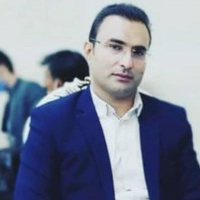The Effect of Mindfulness-Based Cognitive Therapy on Anxiety of Pre-Hospital Emergency Staff
Anxiety is one of the important problems in the daily lives of medical emergency staff. Experiencing this state and its complications can decrease the quality of work and reduce the desire to continue serving. Mindfulness-Based Cognitive Therapy (MBCT) can be one of the effective interventions for reducing anxiety. The present study aimed to investigate the effect of MBCT on reducing the anxiety of pre-hospital emergency staff.
This is quasi-experimental study with pretest-posttest design using control group. The statistical population consisted of all staff of the Center for Disaster Management and Emergency Response in Alborz, Iran in 2017 (n=100). Of these, 75 were selected who had a moderate to high anxiety score based on the Kettle test. In the end, 30 were entered into the study based on inclusion criteria and then randomly assigned into two groups of control (n=15) and MBCT groups (n=15). The control group received no intervention. Having consent to participate in the study by signing a written form, having no acute physical and psychological disease, not receiving psychological and medication treatment during the past few months and no participation in any other similar studies were the inclusion criteria, while the exclusion criteria were: absence form more than three sessions and having no willingness to continue participation. The experimental group received MBCT for 8 sessions, once per week, each for 90 minutes. The data collection tool was the Cattell’s anxiety scale. Collected data were analyzed using descriptive (mean and standard deviation) and inferential statistics (ANCOVA to test the research hypotheses, Kolmogorov-Smirnov to examine the normality of data distribution, and Box’s and Levene's tests to test the quality of variances) in SPSS v. 22 software.
MBCT could reduce the anxiety of subjects compared to controls (F=32.87, P<0.05). Moreover, it led to a significant reduction in self-sentiment development (P<0.05, F=13.32) or paranoid trend (F=9.40, P<0.05) in pre-hospital emergency staff. The ANCOVA results showed no significant difference between the MBCT and control groups in terms of guilt proneness, ego-strength, and ergic tension (P>0.05).
It was concluded that MBCT can reduce the anxiety of emergency medical staff. It can help them identify anxious thoughts, challenges and struggles with these thoughts, and confronts and replaces them with non-anxious thoughts. MBCT, by reducing their self-sentiment development and paranoid trend, is an effective measure to reduce the anxiety and hence, increase the work efficiency and job satisfaction of pre-hospital emergency personnel and increase their resilience in emergency situations. By improving the MBCT techniques, we can hope that it can improve mental health, quality of work, job satisfaction, and resilience of this medical group.
- حق عضویت دریافتی صرف حمایت از نشریات عضو و نگهداری، تکمیل و توسعه مگیران میشود.
- پرداخت حق اشتراک و دانلود مقالات اجازه بازنشر آن در سایر رسانههای چاپی و دیجیتال را به کاربر نمیدهد.


